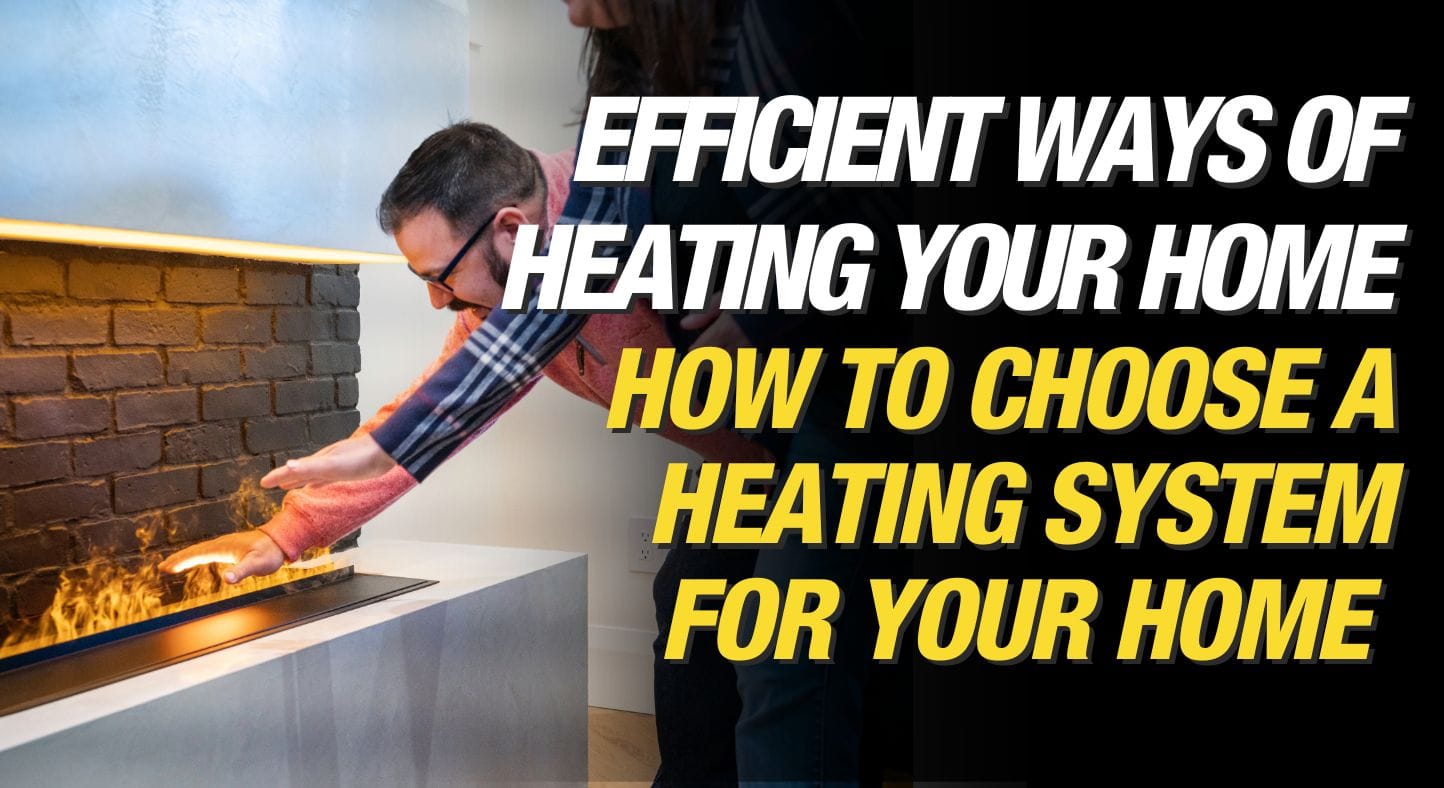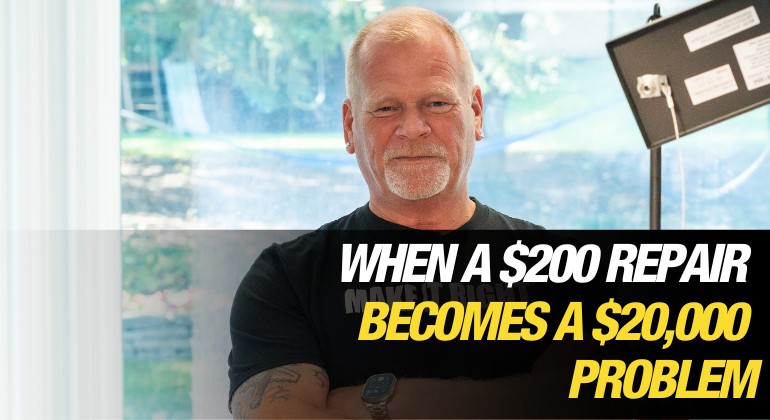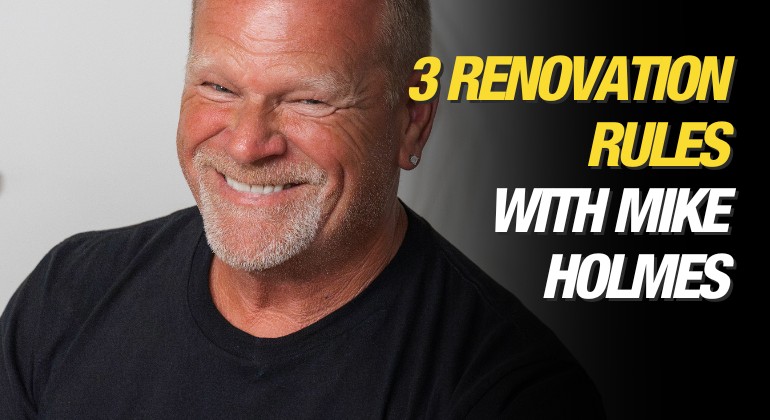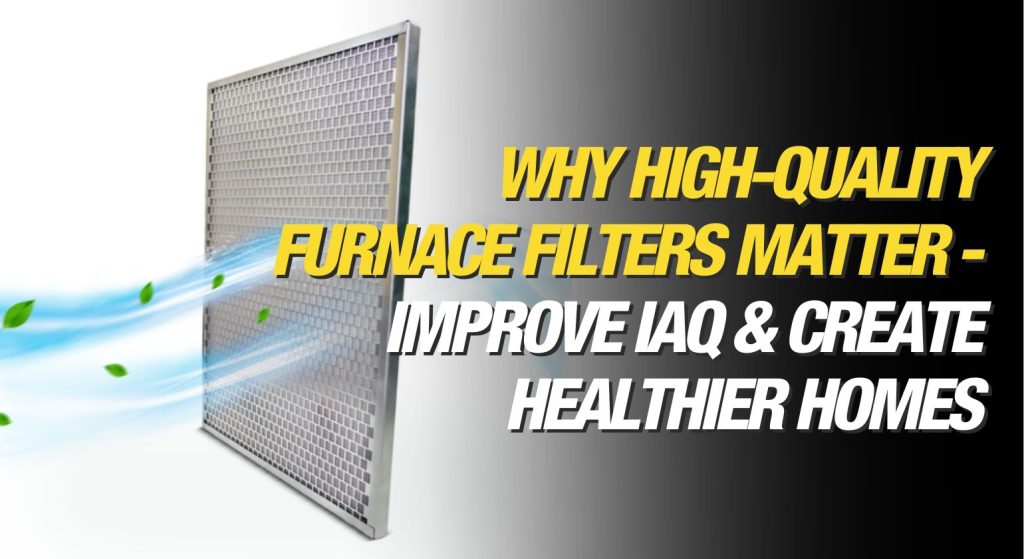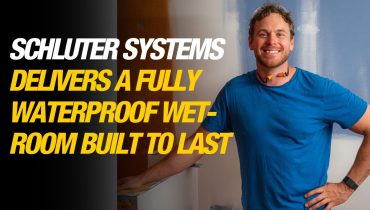I love exploring new technology—especially when it genuinely improves how we work in construction—and I recently came across one that truly impressed me, iGUIDE by Planitar Inc. In my...
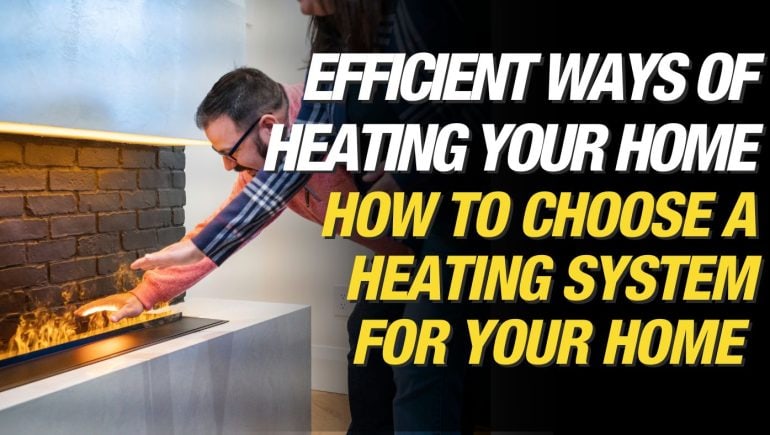
How to Choose a Heating System for Your Home
By Mike Holmes
Mike’s Advice / Home Renovation
Thursday, January 2nd, 2025 @ 2:40pm
Efficient Ways of Heating Your Home ft. Cold Climate Heat Pumps
The kitchen is frequently described as the heart of your home, and I agree. Families and friends gather here to prepare and cook meals while enjoying a feast and one another’s company. However, I always say your HVAC system is the heart of YOUR HOME because its primary function is to keep your family warm in the colder months and cool in the warmer months. All at the most comfortable temperature year-round. But which heating and cooling system is right for you? Based on my conversations with the HVAC pros we work with, here are five different systems to keep your home toasty.
Furnaces: The Longtime Trusted Heating Source
First up, the trusty old furnace. Furnaces have been around for ages, and for a good reason. They’re reliable, efficient, and, most importantly, they keep your home warm when you need it the most. Furnaces operate by heating air and then blowing it through your ductwork to reach every corner of your home.
Modern furnaces come in various types, including natural gas, propane, or electric. Natural gas furnaces are a popular choice due to their cost-effectiveness and efficiency. However, it’s essential to always have a professional technician perform regular maintenance and inspections on your furnace to ensure it’s running smoothly and there are no safety concerns or repairs needed.
Another factor to consider is the cost of the energy source, as we know costs can fluctuate greatly when it comes to natural gas, propane or electricity depending on where you live.
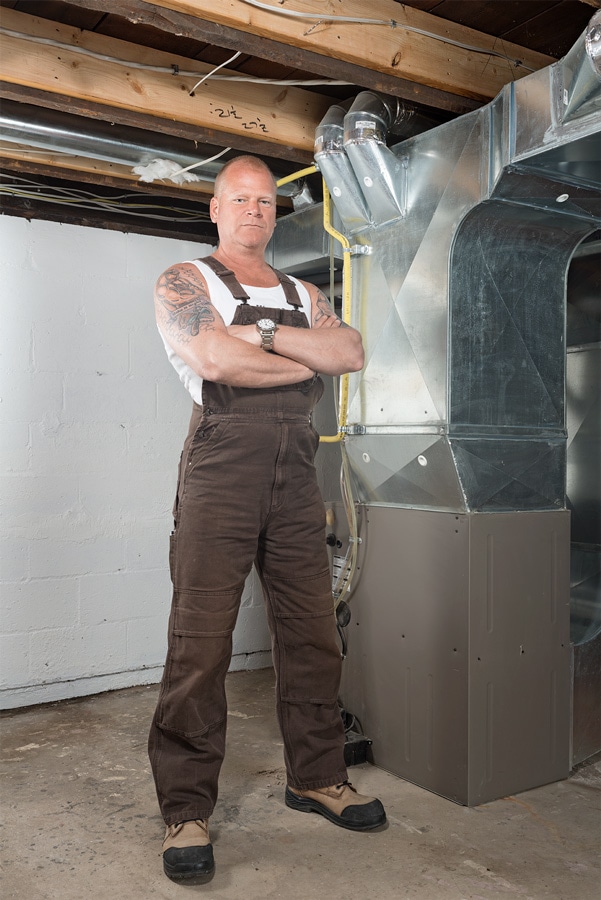
Furnaces have been around for ages, and for a good reason
Importance of Regularly Replacing Your Furnace Filters
There are two types of air filters: permanent and semi-permanent. Certain air filters may be reused if frequently washed with soap and water or simply rinsed with clean water. However, semi-permanent filters need to be thrown away and replaced regularly. What kind and brand of HVAC system you have will determine this.
In order for your system to operate at its most effective level throughout the winter, set a reminder to change your filter at the beginning of the month. It makes it easier to remember.
READ MORE
Heat Pumps: Provide Heating and Cooling Efficiency and Function in All Seasons
I like heat pumps, especially the latest models using inverter drive technology. These systems are known for their efficiency and versatility. Heat pumps work by transferring heat between the inside and outside of your home, making them perfect for both heating and cooling.
Types of Heat Pumps
Heat pumps come in two main types: air source and ground source (geothermal).
Air source heat pumps use the air as their heat source, making them suitable for milder climates. In the winter months, heat is taken from outdoor air and “pumped” indoors. The unit operates like an air conditioner in reverse. In the summer months, your heat pump in cooling mode uses a refrigerant to extract warm air from inside your home and release it into the air outside.
Ground source heat pumps, or geothermal systems, tap into the stable temperature of the ground to provide efficient heating and cooling. While geothermal systems are more expensive to install, they offer significant energy savings in the long run. However, technological advancements make a cold-climate heat pump a perfect choice for heating and cooling a small house.
On the other hand, mini-splits, which are considered air-to-air heat pumps, are a great choice for areas that don’t have proper ducting or where you prefer to control the temperature separately. This can include an in-law suite, an addition or even a top floor of an older home that always seems to be too cold or too hot depending on the season.
Also, there are many older homes in the city that still heat by radiators but are upgrading to include heat pumps in their heating systems and moving away from gas systems.
READ MORE
Heat Pump vs AC: Guide for Summer Cooling
Mini-Split Heat Pumps: 6 Reasons to Go Ductless on Your Next Installation
Exploring Mini-Split Heat Pump Energy Efficiency & Features
Guide to Mini-Split Heat Pumps for Old Homes: Efficiency, Comfort, and Savings
Cold Climate Heat Pump with Zones
It’s essential to use the term “cold climate heat pump with zones” when discussing heat pumps because they enable you to use your central HVAC system less and save money on electricity. Cold climate heat pumps are more efficient than regular air source heat pumps and can operate in colder temperatures.
This high capacity 4 tonne (48,000 BTU) unit can work at 100% capacity down to 5F or -15C, whereas most of the equipment today runs at 70% capacity to 5F. The high capacity unit is great news for homeowners living in colder climates. This unit differs from the other line of products with the addition of the Enhanced Vapour Injection feature, which is a specialized compressor that enables it to work in these extreme temperatures.
Contact your local dealer or HVAC professional to find out what heating system is right for your home.
READ MORE
What Heat Pump Have We Installed On Our Projects?
We’ve been installing Inverter Ducted System heat pumps on many of our projects, and they’re great. High-efficiency, ultra-quiet and they’re built to last.
Here are some of the features I love and think are important for every homeowner to consider when choosing a heat pump:
- Fully Modulating Inverter Drive:
- What it means: This feature adjusts the heat pump’s power to precisely match your heating or cooling needs. It ensures you get the right amount of comfort without wasting energy.
- Flexible System:
- What it means: The heat pump can work with both communicating and non-communicating systems, depending on your home or project’s requirements. This flexibility makes it easier to integrate into different setups.
- Accepts Utility Demand Response** Events Directly:
- What it means: Your heat pump can respond to signals from your utility company to reduce energy usage during peak times, even without a special thermostat. This helps save energy and can lower your bills.
- Integrated with an App:
- What it means: You can control and monitor your heat pump remotely using your smartphone. The app makes it easy to adjust settings and check performance from anywhere.
- Remote and Onsite Monitoring and Energy Usage Feedback:
- What it means: You can keep track of how much energy your heat pump is using and make adjustments to improve efficiency, whether you’re at home or away.
- Demand Response Feature:
- What it means: The heat pump can automatically adjust its output based on energy demand from the utility company. This helps balance the power grid and can save you money.
- Compatible with Smart Thermostats:
- What it means: This thermostat helps optimize your home’s temperature control, making it easy to set and maintain the perfect comfort level.
- 10-Year Residential Limited Warranty:
- What it means: Look for a brand that offers a long-term warranty, giving you peace of mind that your investment is protected.
READ MORE
10 Questions Homeowners Ask About Heat Pumps
Hybrid Heating Systems
Many HVAC specialists believe the future of heating and cooling our homes will be a hybrid heating and cooling solution that includes a heat pump. A hybrid heating system switches between electricity and natural gas to heat and cool more efficiently. This reduces emissions, optimizes energy use and reduces long-term costs.
In a hybrid system, an additional system, like a furnace or boiler, is used in addition to the air-source heat pump. This is useful for both new installations and when adding a heat pump to an existing system, as is the case when installing a heat pump to replace a central air conditioner.
A hybrid heat pump system operates based on the temperature outside, it chooses the best function mode automatically. The heat pump option often operates in warmer weather, while the hybrid mode is used in winter. The gas mode starts to run when the temperature drops into the low negatives, adding enough extra heat for the house.
RELATED
Understanding The Refrigerant Changes
Up until now furnaces have been manufactured with R-410A refrigerant, also known as Puron, is being phased out. Puron also replaced R-22 or Freon years ago.
We should always expect changes as advancements are made, so this shouldn’t come as a surprise, but honestly this is where the homeowners need to educate themselves so they are aware of the changes when they look to find a HVAC service technician. You want them to be educated with up-to-date technology, rules and regulations.
Industry leaders, lsupport technological development and will ensure that households and professionals in the field are informed about the transition to R-454B refrigerants through webinars and other tools.
The new systems will all run on the updated refrigerant R-454-B, and will be more environmentally friendly and is expected to provide better efficiency than older refrigerants.
How will this affect everyday households?
This upgrade is not a DIY project. Always call in the pros for any HVAC maintenance or repairs.
This change should be OK with homeowners, as the objective is to minimize the impact on customers as much as possible by implementing the appropriate safety measures to address the transition and to keep costs stable. Accordingly, this change will mostly affect homeowners only at the time of maintenance or repair related to the refrigerant.
However, as the old R-22 and R-410a refrigerant is being phased out it will be more costly for the HVAC technician and the homeowner to source this refrigerant moving forward, and at some point, the refrigerant will be obsolete.
READ MORE
Why Is HVAC Refrigerant Changing and How Will It Affect You
Here is a Guide from the International Code Council on Preparing for A2L Refrigerants
What is there to help homeowners?
The Inflation Reduction Act (USA ONLY) can help homeowners. Contact your local state government for any tax credits or incentives to help with the cost of upgrading your system, that includes:
- Electric high-efficient heat pumps
- Switch your AC over to heat pump technology
Contact your local utility or energy board to find out more about the tax rebates and incentives available in your area.
Boilers: Steaming Hot Comfort
Boilers work by heating water, which then circulates through radiators or radiant floor systems to warm your home. They’re known for their efficiency and even heat distribution. Boilers can be powered by various fuels, including natural gas, propane, oil, or electricity.
One advantage of boilers is their durability, with many systems lasting for decades if properly maintained. Regular servicing is essential to prevent issues like leaks or inefficiencies.
Additionally, consider investing in a modern, high-efficiency boiler to maximize energy savings and reduce environmental impact.
READ MORE
Radiant Heating Floors: Warm Feet, Happy Home
If you’re tired of cold feet in the morning, radiant heated floors might be your dream come true. This system involves installing heating elements beneath your flooring, which then radiate heat upwards. It’s an excellent option for bathrooms, kitchens, mudrooms or any room where you want to banish cold floors for good.
Radiant heating can use either electric resistance cables or hot water tubing. Electric systems are easier and less expensive to install, but they can be more costly to operate. We always install Schluter DITRA-HEAT electric in-floor warming systems in all our projects and it’s great. They do more than just warm your floors —they also protect your tiles by uncoupling movement stresses that could otherwise lead to cracks.
If you’re aiming for a quieter, more energy-efficient space, DITRA-HEAT-DUO is a great solution, featuring a fleece layer that reduces noise and improves thermal efficiency. For even easier installation, there’s a peel-and-stick version of DITRA-HEAT-PS and DITRA-HEAT-DUO-PS. With no thin-set required and minimal tools needed, it’s a quick and efficient option. We’ve used it on multiple projects and I highly recommend them.
Hydronic systems, which use hot water, are more energy-efficient but require a boiler to heat the water.
Remember, proper insulation and installation are crucial to ensure optimal performance no matter which application you chose.
RELATED
In-Floor Warming Systems Explained
Heated Floors And Uncoupling Membranes: Questions Answered
Bathroom Flooring Guide: Schluter DITRA-HEAT Peel And Stick Product-Review
Fireplaces: Heating and Adding Cozy Warmth to a Room
Fireplaces are more than just a heating system; they add a touch of charm and ambiance to your home. Whether you prefer traditional wood-burning fireplaces or more modern gas or electric options, a well-maintained fireplace can provide both warmth and a cozy atmosphere.
Wood-burning fireplaces are a classic choice, but they do require some effort to maintain. You’ll need to stock up on firewood, clean the chimney regularly, and ensure proper ventilation. Also, it’s not just the inside of your chimney that needs maintenance. Don’t forget to properly maintain exterior brickwork and ensure the chimney cap is not damaged to prevent unwanted critters.
Gas and electric fireplaces, on the other hand, are convenient and cleaner options, and can typically be controlled by a remote. I had my wood-burning fireplace upgraded to a gas fireplace recently. Make sure it’s installed correctly otherwise you may lose some heat output as it’s venting outside. This could lower it’s energy efficiency. Electric fireplaces, on the other hand, don’t need outside ventilation because they don’t burn anything.
RELATED
Choosing the right heating system for your home is a big decision. Each of these systems has its strengths and considerations, so it’s essential to weigh your priorities and consult with a qualified HVAC professional. Remember, a comfortable and warm home is not just about comfort; it’s about safety and efficiency too. So, do your research, ask lots of questions, make informed decisions, and always put safety first.
READ NEXT
